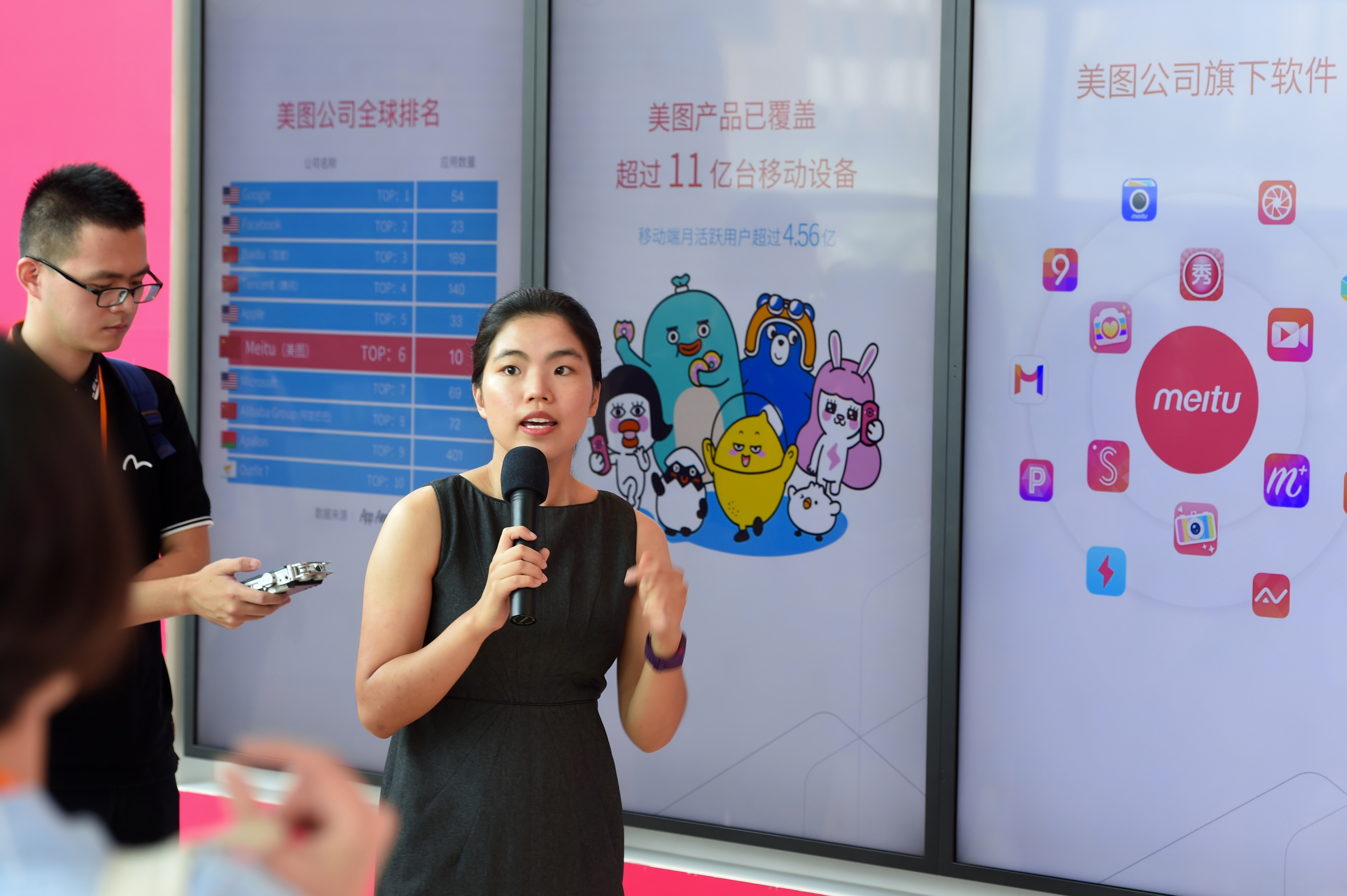Chinese apps winning over Southeast Asia
 0 Comment(s)
0 Comment(s) Print
Print E-mail China Daily, September 2, 2019
E-mail China Daily, September 2, 2019

Online content creator Marta Rosli Saragih was in for a pleasant surprise when she recently uploaded her tutorial on how to use the Chinese photo-editing app Meitu.
It quickly became the most-viewed video on her channel, which she started in May to teach photo-editing skills.
"The response was completely beyond my expectations," said Saragih, 21, from Indonesia.
However, the outcome may not be that surprising considering that the Meitu app has been one of the most popular in China for image-editing over the past decade.
The company only began to focus on global expansion last year, with a keen eye on Southeast Asia.
Within a year, Meitu had taken top spot in both Apple's App Store and Google Play in six overseas markets. The company said that for a time it was also ahead of global apps such as video-streaming site YouTube, social media platform Instagram and messaging app Snapchat.
In addition to Meitu, other Chinese apps looking to emerging markets such as Southeast Asia have successfully taken the mobile internet market by storm.
In the first quarter of this year, Tik Tok, the overseas version of the short-video app Douyin, was the most-downloaded on the App Store for the fifth consecutive quarter, overtaking YouTube and Instagram, according to the research company Sensor Tower.
With an estimated 190 million users, Southeast Asia accounts for nearly 40 percent of Tik Tok's global users, according to a report in May by The Straits Times in Singapore, citing data from Sensor Tower.
LIKE, another Chinese short-video app, ranked among the top 10 in the Indonesia Play Store, according to a report by the technology and business news portal KrASIA in May, citing the mobile data and analytics service provider App Annie.
According to a survey by the global management consultancy McKinsey & Co in 2016, Joox, a music-streaming service owned by Chinese internet giant Tencent, was the top music app in Thailand, Malaysia and Indonesia.
In China, Meitu is popular for its powerful editing tools. Many young women use it to enhance their looks by giving themselves a narrower chin, bigger eyes, whiter skin and even longer legs.
The Meitu company, which owns apps such as BeautyCam and Meipai, has more than 332 million active users per month and an estimated value of billions of dollars. The company launched the BeautyPlus and AirBrush platforms in overseas markets ahead of the Meitu app.
In January 2017, after the "hand-drawn selfie" function was launched, the Meitu app gained popularity in the West when edited pictures of public figures such as Facebook founder Mark Zuckerberg, Amazon chief Jeff Bezos and SpaceX CEO Elon Musk went viral on social media. In just three months, the function was used more than 520 million times globally.
Maggie Ke, regional marketing head for the Meitu app, said, "This popularity was purely because the users were keen on it, taking our ranking at the time from below 900 to the top 30 in the US App Store."
It gave the company a lot of confidence that the app could be as popular overseas as it had been in China, she added.
During Spring Festival this year, the app became a hit in Southeast Asia by offering a personalized anime avatar feature. The biggest increases in the number of daily active users were in Malaysia, Vietnam and Singapore, with growth rates reaching 50 percent, 44 percent and 28 percent, according to the company.
As a first-time user of the app, Natasha Pangilinan, 21, an office worker in Manila, capital of the Philippines, found it interesting and efficient. "It offers many 'presets' and I don't need to adjust the settings," she said.
"I like not having to figure out anything else. Everyone wants to look good on social media platforms."
Although not a regular user of photo-editing apps, Pangilinan still spends about five minutes adding filters and effects before sharing a picture online. "People in the Philippines like taking selfies, and the Meitu app can be helpful in producing more appealing photos," she said.
The Chinese file-sharing tool SHAREit illustrates the popularity of an app in providing the right service to solve difficult market problems.
Launched in 2015, it spent about a year attracting more than 870 million users worldwide. Today, SHAREit has over 1.8 billion users and has always been in the top 10 of Google Play's most downloaded apps.
Jason Wang, chief business officer for SHAREit, said, "At the beginning of 2015, we found hundreds of thousands of new users joining from India and other countries every day, but we didn't have any local staff and didn't spend a penny on marketing."
After conducting field research in India, the company was surprised to find that many people, from taxi drivers to students, were using the app through word of mouth.
Wang added that smartphone sales representatives would even help customers download SHAREit to transfer commonly used apps, videos and music, as well as telling friends and relatives that the app does not require mobile data to transfer photos and music.
In India and Indonesia last year, SHAREit was the fifth-most-downloaded app on the App Store and Google Play. The combined number of users in these two markets alone exceeds 600 million, according to the company.
Content creator Doni Agung Nugroho operates a YouTube channel in Indonesia to share information about internet marketing and tutorials for mobile apps, including SHAREit. He said he first heard about the app through advertisements and found it easy to transfer files between different devices.






Go to Forum >>0 Comment(s)